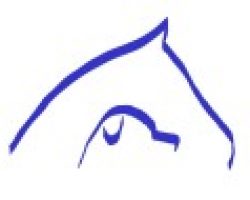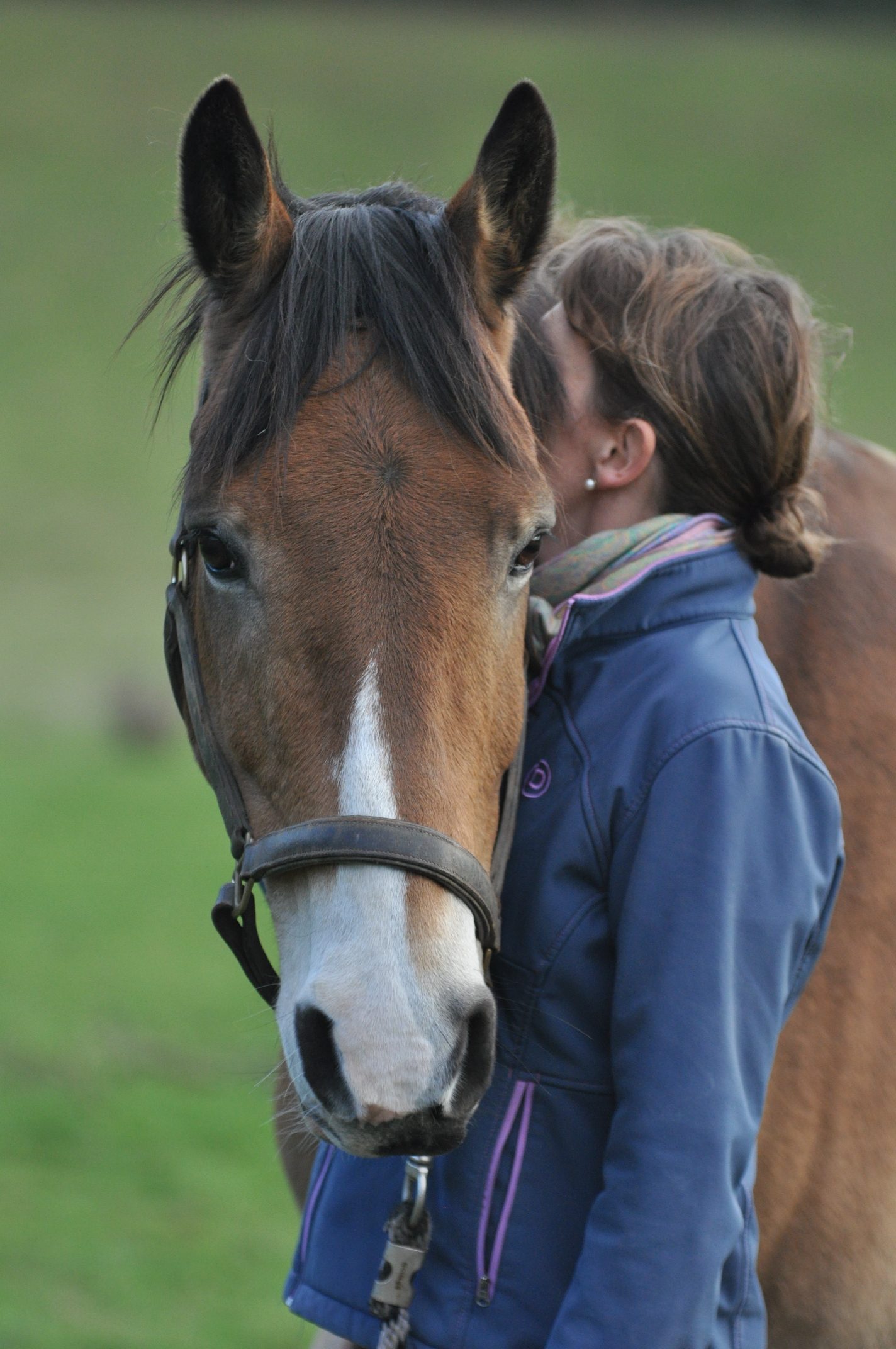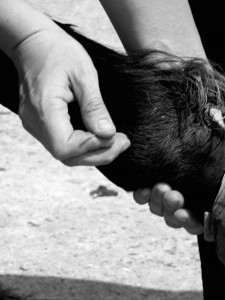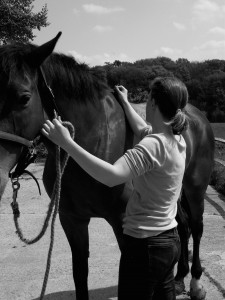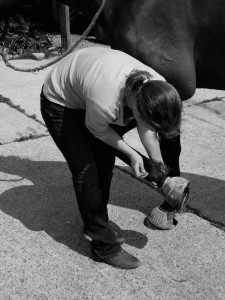Competition horses taking part in a wide range of disciplines are prone to developing minor injuries that often go unnoticed. Eventually these build up and cause the horse to compensate by altering its way of moving and this makes it susceptible to more serious injury. Acupuncture for horses can be a huge benefit to providing treatment to their underlying issue.
What conditions can acupuncture be used for with horses?
Acupuncture for horses can be used as part of a treatment protocol for almost any medical condition with very little exception. It is often used in combination with conventional veterinary treatment so the patient experiences the benefits of the combined effects.
In equine practice, acupuncture is commonly used together with chiropractic for the relief of musculoskeletal pain. It is especially useful for treating:
- Any type of muscle soreness, particularly of the neck, shoulders, back and hindquarters.
- Cold backs – resentment of saddling and girthing, dipping on mounting
- General stiffness, inability to bend on one or both reins
- Head tilt, inability to flex from the poll
- Shortness of stride, not going forward from the leg
- Disunited or bunny-hopping at canter
- Moving un-level behind
- ‘Hopping’ on the transition from walk to trot
- Bucking on the transition from trot to canter
- Irritability and soreness during grooming
- Arthritis
- Sacroiliac pain
- Headshaker syndromes.
Acupuncture is also used to influence the function of internal organs:
- Respiratory problems
- Dermatological problems
- Gynaecological problems in mares, including infertility
- Poor immunity and post viral lethargy
- Digestive problems including loss of appetite, diarrhoea and some types of colic
Treating lameness with acupuncture:
Lameness whose cause and localisation cannot be determined by conventional medicine and lameness radiating from the upper areas of the limbs can be successfully treated by acupuncture. Lameness caused by an inflamed joint must first be subjected to conventional joint treatment. Acupuncture can be performed subsequently to restore physiological muscle and ligament functions. Lameness requiring surgical treatment and immobilisation of the horse can be positively supported by acupuncture during the training redevelopment phase.
Treating backache with acupuncture: Acupuncture can be used to treat all kinds of back pain and attendant lameness. For example, horses with muscle tensions arising from intense exertion and who are unable to swing their backs properly or display lameness respond excellently to acupuncture.
This includes disobedience during riding caused by pain.
Acupuncture can be used to treat painful disorders of the musculoskeletal system.
What can I expect during treatment?
In the beginning, I will assess the horse in their stable or where it is tied up, to get an idea of its conformation, constitution and muscle distribution. We will talk about the problems you are experiencing, about exercise, feeding, work plan and pattern, training and goals. Usually, I then see the horse moving on the lunge or in hand. This is to assess the movement. We will have a look at the saddle if I feel necessary and answer any other any other questions you or I may have. Usually I proceed with bodywork followed by acupuncture. If I feel it is necessary I will do aqua acupuncture and prescribe Chinese herbal formulas depending on the individual pattern. When acupuncture is finished, which can take between 10 and 20 minutes I like to leave the horse in for a little while, or resting with some hay so they can feel and have some relaxation time. After that I often request them to be moved which can be in hand exercise for 10 to 15 minutes.
What to expect after the treatment?
Usually I let the horses rest for about 10 minutes after the treatment, and then have them in hand walked for 10 to 20 minutes. This is to set the treatment pattern in stone and let the horses experience the looser fascia and different way of moving. For the following couple of days I like the horses worked in a gentle manner. Some horses react very energetically in which case it should be put into constructive work, but not overly hard. It is about channelling the new experienced energy and imprint the looser way of movement. If the horses are rather quiet and tired, I like them to be exercised in a very gentle way, making sure that exercises for elasticity are used to encourage the horses to feel the suppleness. After two to three days the horses can go back into normal work unless recommended different. Usually the horses are seen again 10 to 14 days after the initial treatment, to see what has changed. At that appointment we assess what needs to be worked on further, set in stone what we have achieved and make a plan for future treat- and management. All of the above points will be covered during your appointment though.
Frequently Asked Questions
Will my horse need to be sedated for this treatment?
I don’t sedate horses for my treatments. Most of them are very happy to be treated and become very relaxed. Some horses may take a little longer than others, however after a few treatments they recognise the benefits and trust me to treat them.
How often would my horse need to be treated?
There is no straight answer to this question as every horses circumstances and situation is different. Some people see me twice a year, other horses are seen every month for maintenance. It depends on the pattern of the problem as well as if it is a chronic issue or an acute problem. In the beginning the treatments are done close together to see how the horse reacts and for me to get a feel for the response. After that I can usually give an idea and will try to space the appointments out as much as possible but not too much so the patient deteriorates again. I usually give exercises and advice for work in between the appointments to set in stone what we have achieved through the acupuncture for your horse.
Is acupuncture safe for horses?
The answer very simply is, Yes. Acupuncture is a very safe modality. I am a veterinary surgeon who is qualified to perform this treatment. I have years of experience and qualifications in performing my treatments.
